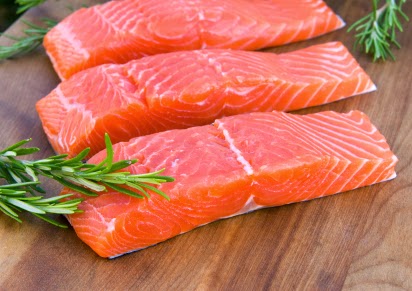Lots of people associate fiber with carbohydrates and to an extent they are. However, fiber can be found in many different natural foods.
Lately news has arisen that carbohydrates not fat are causing the obesity epidemic. And to some extent this is true. Our diets have moved from natural whole foods, to refined foods lacking in fiber, and nutrients but high in fat (but not the good type), salt and sugar.
We have been taught to fear fat and love low fat products which are full of sugar and salt.
Some people have seen the light and removed sugar and refined carbs from their diets. Low carb - high fat diets are highly criticized but they are actually a lot healthier than high carb - low fat diets.
Lots of people think that fat causes heart disease, but we KNOW that high carb diets cause metabolic syndrome, insulin resistance, heart disease and some cancers... mostly due to being over weight from eating too many refined carbs.
 How does that happen? How do we get fat from something our governments are telling us to make the base of our food pyramid?
How does that happen? How do we get fat from something our governments are telling us to make the base of our food pyramid?When you eat carbs, they produce a spike in blood sugar which causes the pancreas to release insulin to lower the blood sugar levels. To do this, the hormone insulin sends messages to the liver, muscles and fat cells to take up glucose from the blood, this is then used for energy.
Once the body has enough glucose to be used as energy, excess glucose is stored as glycogen in the muscles and liver (just in case you need to run for a bus). Once the liver has stored as much glycogen as possible, any left over gets sent to the fat cells where it is stored as triglycerides - or in other words... FAT.
Refined carbs such as white bread, pasta, rice, flour, sugar, honey, agave and maple syrup, etc., cause sharp spikes in blood sugar levels and the insulin-fat storing process described above begins every time you eat refined carbs... think toast at breakfast, bread AND dessert at lunch, sandwiches, soup and bread for dinner... How many carbs do you eat on any given day?
However, a lot of this fat storing process is also down to the TYPE of carbs you are eating. "Healthy" carbs do exist and it is all down to the amount of fiber they contain. The higher the fiber the more "healthy" they are. High fiber grains such as rye are broken down more slowly in the body and have less impact on blood sugar levels, hereby avoiding the dreaded spike and insulin response.
 Rye, brown rice, oats, quinoa and Kamut, for example, are also naturally high in essential nutrients such as magnesium, iron, zinc, B vitamins, and manganese. B vitamins and magnesium are essential for converting the food you eat into energy among other things.
Rye, brown rice, oats, quinoa and Kamut, for example, are also naturally high in essential nutrients such as magnesium, iron, zinc, B vitamins, and manganese. B vitamins and magnesium are essential for converting the food you eat into energy among other things.However, restricting your carb intake is essential if you are trying to lose weight. I recommend restricting grains to TWICE a week... that's TWO MEALS a week and HIGH fiber carbs. For example rye toast at breakfast and a quinoa cobb salad for lunch on another day.
But fiber isn't only found in grains. We all need fiber, so when you are thinking about what to eat make sure you have plenty of vegetables on your plate. High fiber vegetables are:
Artichokes
Peas
Broccoli
Carrots (technically a carbohydrate as they are a root vegetable and higher in sugar)
Beets
Green leafy vegetables such as spinach, turnip greens, Swiss chard, etc
Also, high fiber fruits are:
Raspberries
Pear with the skin
Apple with the skin
Banana
Orange
Strawberries
Dried figs
Raisins
So remember, high fiber is good for you but choose wisely as you could be going high carb instead!
I can help you improve your health. If you would like to make an appointment with me either in person or via Skype, just send me an email to lucycarr@socialnutrition.com



























